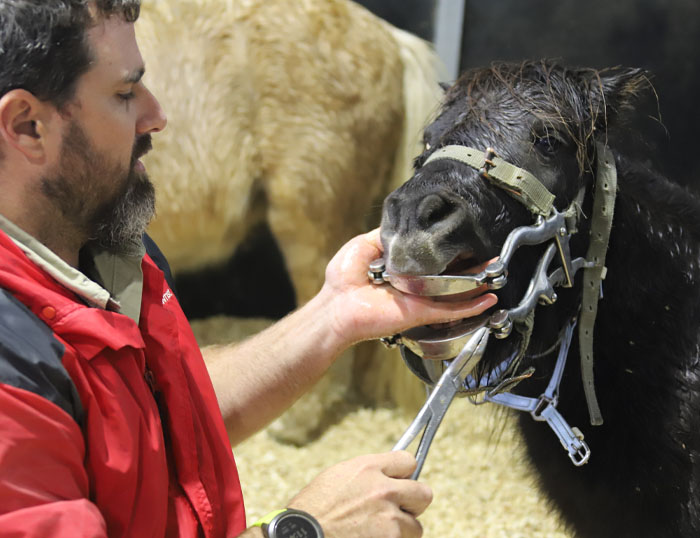Horses are majestic creatures known for their grace and strength. However, like any other living being, they can experience health issues. One such condition is horse salivating excessively. This article aims to shed light on why this occurs, how to manage it, and when to seek professional help.

What Causes Excessive Salivation in Horses?
Excessive salivation in horses can be a sign of various underlying issues. It is essential to understand these causes to address the problem effectively. Some common causes include dental problems, ingestion of toxic plants, and infections. For a detailed overview on equine dental health, you may refer to this external guide.
Dental Issues
Dental problems are among the most common causes of excessive salivation in horses. Overgrown or sharp teeth can cause discomfort, leading to increased saliva production. Regular dental check-ups are crucial for maintaining your horse’s oral health. For more on this, see our horse dental exam guide.
Toxic Plants
Horses grazing on pastures containing toxic plants can also experience excessive salivation. Some plants contain compounds that irritate the mouth and digestive tract, leading to increased saliva production.
Infections
Infections, particularly in the mouth or throat, can cause a horse to salivate more than usual. Bacterial or viral infections need to be diagnosed and treated promptly to prevent further complications.
How to Manage Excessive Salivation
Managing horse salivating excessively involves addressing the underlying cause. Here are some steps you can take:
Regular Dental Care
Ensure your horse’s teeth are checked regularly by a professional. This can help identify and resolve any dental issues early. For post-surgery dental care, visit our dental care post-surgery page.
Monitor Grazing
Keep an eye on the plants your horse has access to. Remove any known toxic plants from their grazing area to prevent accidental ingestion.
Seek Veterinary Help
If your horse continues to salivate excessively despite your efforts, consult a veterinarian. They can conduct a thorough examination and recommend appropriate treatment.
When to Seek Professional Help
While some causes of excessive salivation are benign, others may require immediate veterinary attention. Contact a professional if your horse shows additional symptoms such as difficulty eating, weight loss, or signs of pain. For a comprehensive understanding of equine dentistry, consider this resource from Janssen Vet Clinic.
Preventative Measures
Prevention is always better than cure. Here are some preventative measures you can take:
Regular Check-ups
Schedule routine veterinary check-ups to catch any potential issues early. Regular check-ups can help ensure your horse remains healthy and happy.
Proper Nutrition
Provide your horse with a balanced diet rich in essential nutrients. Proper nutrition supports overall health and can prevent many issues related to excessive salivation.
Safe Environment
Ensure your horse’s environment is free from hazards and toxic plants. A safe environment reduces the risk of accidental ingestion and related health issues.
Conclusion
Understanding the causes and management of horse salivating excessively is crucial for any horse owner. By taking proactive steps and seeking professional help when necessary, you can ensure your horse remains healthy and comfortable. Remember, regular dental care and a safe environment are key to preventing excessive salivation.

FAQs
What should I do if my horse is salivating excessively?
If your horse is salivating excessively, it’s essential to determine the cause. Check for any signs of dental issues or toxic plant ingestion, and consult a veterinarian if necessary.
Can stress cause a horse to salivate excessively?
While stress can affect a horse’s behavior and health, it is not a common cause of excessive salivation. Focus on identifying physical causes first.
How often should my horse have a dental check-up?
It is recommended that horses have a dental check-up at least once a year. However, younger and older horses may require more frequent examinations.
This article contains affiliate links. We may earn a commission at no extra cost to you.
